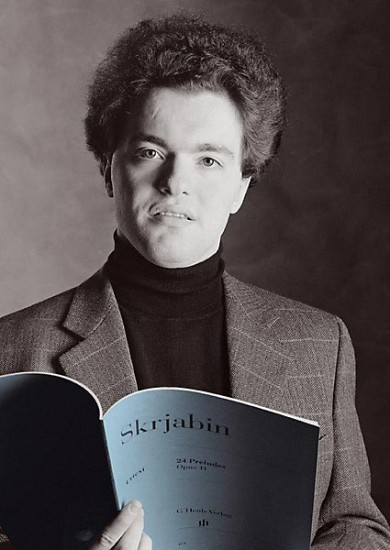Kissin closes Kravis classical season in supreme artistic style

Evgeny Kissin performed music of Haydn, Beethoven, Schubert and Liszt Tuesday night at the Kravis Center in West Palm Beach.
The Kravis Center’s Regional Arts Concert Series concluded its 38th season Tuesday night with a recital by Evgeny Kissin. Now 41, the Russian pianist has achieved near-legendary status, transitioning from gifted child prodigy to globetrotting virtuoso, all the while remaining an elusive personality. A large, unusually enthusiastic West Palm Beach audience awarded him standing ovations after nearly every work on the program. Like Vladimir Horowitz before him, Kissin’s concerts have become bona fide events.
Kissin launched Haydn’s Sonata No. 59 in E-flat Major with a sharp, fast attack. Giving special attention to the bass line of the opening Allegro, he emphasized the rocking figure beneath the crisp rhythmic surface. He brought a lighter touch to the Adagio e cantabile, the pathos under the delicate melodic line casting darker shadows. A fleet, rollicking version of the Tempo di minuet finale was infused with Haydnesque wit, the unexpected pauses and modulations between major and minor conveyed with pitch-perfect timing and precision. Kissin’s reading cannily fused stylish classism and interpretive flexibility.
Kissin took no prisoners in scaling the heights of Beethoven’s Sonata No. 32 in C minor. Vast in scale and stretching musical form to its very limits, Beethoven’s final Op. 111 sonata is a formidable test of pianistic technique and artistic intellect.
Thunderous chords heralded the opening passages and Kissin’s coiled intensity propelled the Allegro con brio ed appassionato, fistfuls of notes passing at relentless speed. For all of Kissin’s demonic energy, his palette of tonal colors and graduated dynamic range infused Beethoven’s canvass with expressive depth. The calm, deliberate statement of the Arietta was prelude to an imaginative journey through Beethoven’s expansive set of five variations. Kissin masterfully encompassed the changes of mood and meter, the transitions never abrupt or jarring. Even in the extended coda, there was distinctive character and a sense of epic line. Kissin extensively utilized the pedals for contrast, the final hesitations exquisitely fading on a note calm tranquility.
Kissin’s performances of the solo piano works of Franz Schubert have sometimes veered toward the cool and clinical. If not quite to the artistic manner born, Four Impromptus received warmer traversals that captured much of the vignettes’ fantasy and romance. The contrasting pensive figurations and melodic strophes in the large scale F minor Impromptu, Op. 142, No.1 were suavely projected. Kissin sailed through the lyrical melodies of Op. 142, No.3 in B-flat Major and the beautifully sustained line of Op. 90, No.3 in G-flat Major was almost vocal in lieder infused song. More charm would have been welcome in the famous A-flat Major Impromptu, Op. 90, No. 4 but Kissin’s scintillating execution of the recurrent triplets and sterling musicianship brought its own rewards.
Liszt’s Hungarian Rhapsody No. 12 in C-sharp minor is a no-holds-barred showpiece. While Kissin brought plenty of power pounding fervor to the climactic moments, his performance was distinguished by its restraint. Perhaps more in the vein of Chopin than Liszt, Kissin engendered solemn nobility in the score’s opening pages and lithe, beautifully shaded verve in the fast sections. Substituting melodic grace for bombast, his performance was altogether winning and refreshing.
The audience’s repeated cheers finally brought a smile to Kissin’s somber demeanor but he did not offer any encores which was surprising for this usually generous artist.
The program was dedicated to the memory of his late father Igor Kissin, as are all his performances on this U.S. tour.
Posted in Performances
Leave a Comment
Wed Apr 17, 2013
at 12:39 pm
No Comments




